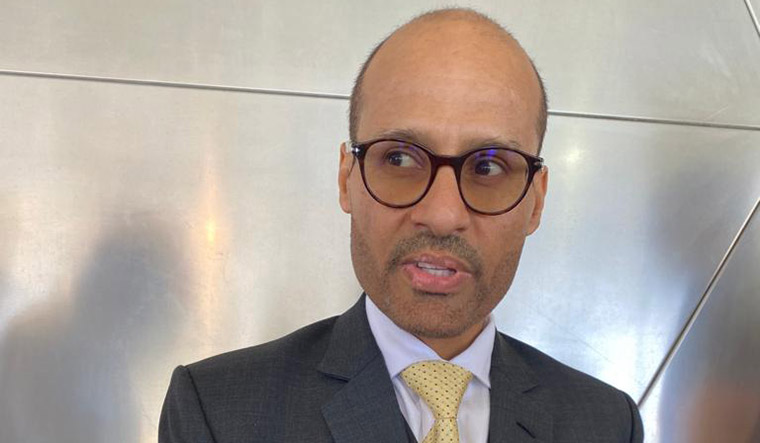Q/ How do you view the Israel-UAE partnership in cyber security?
A/ The I2U2 gives us a platform for communicating with Israel on many issues. From the cyber security point of view, it has brought many partners and entities―government or businesses―that can help us achieve our mission of becoming a global hub for data and technology. The Abraham Accords definitely opens a great opportunity for both Israel and the UAE. It is helping in sharing information on cyber security, and both countries have startups that are bringing a modern, futuristic vision. The governments need to encourage this collaboration.
Q/ What is the UAE’s cyber security strategy?
A/ It focuses on five pillars―national and international collaboration, cyber security, resilience, innovation and building a cyber-smart nation…. The UAE is moving towards digital transformation and that covers all domains, from aviation, transportation, education, oil and gas, health care to many critical infrastructures on which our lives depend. If we transform and move towards digitisation without doing it right, we are taking a very big risk.
Q/ What is the UAE’s vision and goals on cyber security?
A/ We are planning to make the UAE a hub of data and digital technology and we are working with many entities to achieve this. There are many companies from the UAE and in Israel [that are] exploring these opportunities.
Q/ Cyber awareness and a culture of cyber hygiene is the need of the hour. Your comments.
A/ We are trying to uplift the cyber culture. It needs to become the DNA of our day-to-day life. Our kids use technology more than we do. The risk they see and the landscape of that threat is much bigger than what we can see. Therefore, we are working with different sectors on cyber culture education from a young age. One of them is ‘cyber pulse’for children from kindergarten to class 12. We are working with the ministry of education to embed some cyber terminology in the curriculum so that kids become familiar with keywords.
Q/ Have the number of cyber attacks on the UAE gone up?
A/ From 20,000 cyber attacks per day, the UAE [now] deters around 50,000 attacks per day. The use of technology and artificial intelligence has increased the numbers and canvas of attacks. There are huge attacks happening all the time. Any unwanted contact with our network is considered an attack.
Q/ How are India and the UAE collaborating on cyber security?
A/ An MoU on operational collaboration on cyber security has been signed between India and Israel. The relationship is attaining new heights, with startups creating newer opportunities. GITEX Global, the world’s largest tech showcase in October, will be testimonial of this relationship, whether it is India or Israel or other countries.
Q/ From whom is the UAE facing maximum threat?
A/ We do not go into names or nations. We do not attribute threats to state or non-state actors, but we treat them as threats like APT, ransomware, DDoS and phishing. We stop at that. There is no attribution. If you bring any company that claims attribution of an attack is possible and identifies the origin, I will [sign a] contract with that company right now! No one speaks of attribution. Everyone talks about speculation. So we try to defend ourselves. We are unified in our efforts and we need to be resilient and help each other. Recently, we discussed cyber terrorism at the United Nations and how technology is being used in a harmful way. All countries agreed that it is a double-edged sword. So, the focus should be to create a culture of cyber security and spread it by using technology and by framing cyber policies and laws in a useful way.


